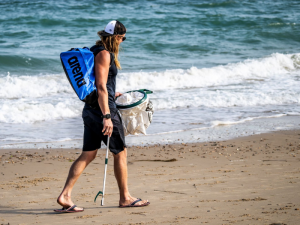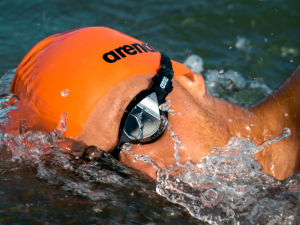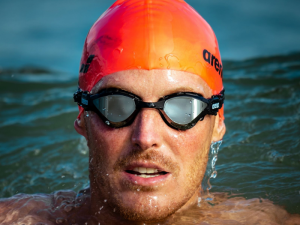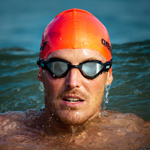A step by step guide to being a more responsible open water swimmer
Being open water swimmers, we get to see the destruction of the natural habitat first hand. The pace at which we move through the water allows us to take a good hard look at what humankind is doing to the planet, and we spend a lot of time on the beach which is where the problems can be all too visible. Many of us consume unconsciously. Whether it’s the media, food, or other household consumables. We do it without thinking, without awareness of the damage that is taking place.
It is the responsibility of every individual to change their habits so that we can help the ecosystems we love so much.
The healing journey won’t be easy and it might not happen in our lifetime. I know for my own journey, I can’t spend my time on planet Earth without at least trying.
I have been thinking about this list for some time, after a lot of brainstorming I have come up with my step by step guide to being a more responsible open water swimmer. These tips are not exclusive for swimmers, every member of society has the potential to make better choices that have a direct impact on the oceans.
1. Awareness
Be aware, look around you, take note. What do you see? How does it make you feel? What are you going to do about it? People often turn a blind eye to the damage they see. The situation would be vastly improved if people really took note. If people truly understood the causes of the destruction, then they might be able to take appropriate action. The message here is to take responsibility for your own individual awareness.
2. Make a plan
Now that you have decided to really look at the problem, it’s time to make a plan about how exactly you are going to tackle it. All across the globe there are charities like Project Planet and Plastic Free Cayman who organise beach cleaning events. Search for your closest group and ask how to get involved. If you want to start your own beach cleaning expedition, use your social media following to get others involved. I think you’ll be surprised by how many people want to do something practical to help. Make sure you take gloves, bags and a reusable water bottle. These trips don’t have to be long, you will be amazed at how quickly your bag fills, just half an hour can make a huge difference to the coastline ecosystem.
3. Share your experience
The first step in making change is creating awareness for the masses. In step one you provided yourself with deep awareness, now it’s time to share your story. Social media is the best place to post pictures and videos of your beach cleaning expeditions. If you don’t have access to the platforms, ask a friend to help you out. It is so important to create awareness in the local community. Once your efforts are seen and noted, more people are likely to join you on your mission.

4. Swim for a cause
Find a charity or organisation who’s core values and mission align with your own. Reach out and ask them if you can raise money for them by conducting sponsored open water swims. Nurture those relationships so that they might become a symbiosis of win win scenarios.
When you are able to partner with organisations that share your ethos you can then potentially use their platform to share your work for even wider reach. We are in a climate where businesses will gladly partner with people and organisations that are creating positive change. It is highly valuable for all companies to be connected with people who are making a positive impact.

5. Take a look at your own consumption
We’ve come full circle and it’s time to look inward again. Since you are spending time preaching the good word about your sustainable lifestyle it’s time to dissect your own situation to see where compromises can be made and alternatives chosen. Not only will choosing less toxic packaging help the state of the oceans, it will also improve your personal health. Study the companies that you support, do they have a sustainable ethos? When we as consumers remove our cash flow from the companies who are not doing anything to help, we regain power. Do your research and choose swim brands that align with your ethos.
This process is allowed to take time. It’s not easy or even possible to swap everything at once. Start small, and know that you are making the steps in the right direction. As you lean into this way of thinking it gets easier and becomes second nature.
With each of these steps, take the action that feels most natural for you. Big changes are hard and it’s up to us to decide what the priority is. Impact awareness is such a huge part of the issue, governments should definitely be budgeting for this kind of work, and for the most part they don’t. That’s why we have to take the initiative and get our hands dirty.
I for one, won’t sit back and watch as the rest of my species destroys the planet.


Written by:
Oly Rush
Hey, my name’s Oly Rush, I'm a swimmer, ocean advocate and environmental campaigner, and I love what I do! From a very early age I was surrounded by water, I trained as a competitive swimmer and summer holidays were often spent on the coast, camping in Cornwall. I’d be in the sea all day body-boarding, then playing in the rock pools, marvelling at the wonderful sea creatures! I couldn't seem to get enough! In the mornings I wake up to the sound of the waves crashing on the rugged coastline, and fall asleep at night listening to them. I was then and still am, drawn to the ocean. Spending all this time around the sea and along the coastline I've been increasingly aware of the huge issue that is plastic pollution. There are many issues our planet is facing and I believe plastic pollution is a great place to start the change that is needed. It's easy to get involved in actively helping to clean up and reduce our use. It can be the very catalyst we need to help us look at other areas of our lives and the impact they might be having on this fragile, beautiful planet. In recent years I've been aiming to raise awareness about plastic pollution through one of my passions, distance swimming. The swims have been growing year on year, each getting longer and harder but in doing so also reaching more people, creating the ripple effect needed to combat such a mind boggling issue. I have tried to slow my pace of life down as much as I can, however I'm currently juggling between earning enough to pay the bills, renovate my house, setting up a charity, regular beach cleans and training for some rather daunting awareness swims. The slowing pace of life isn't all that successful but it's one heck of a journey! I guess if I could sum it up in one sentence I'd say this - 'I want to enjoy my short existence on this planet but tread as lightly as I can, allowing space for other creatures to also thrive.' You can find me on Instagram as @_projectplanet_







